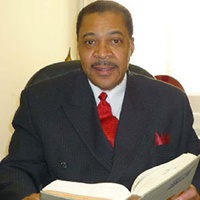Virginville Criminal Lawyer, Pennsylvania
Sponsored Law Firm
-
 x
x

Click For More Info:
-
James E. Crawford, Jr. & Associates, LLC
999 Corporate Blvd. Suite 100 Linthicum, MD 21090» view mapCriminal Defense, Divorce & Family Law Move Forward With Confidence
Our Firm's team of family, criminal, and business lawyers understand that each case presents unique challenges and must be met with equally unique approaches.
800-789-9220
Angelo Leroy Cameron
✓ VERIFIEDCriminal, Personal Injury, Estate, Real Estate
Angelo graduated from St. Joseph’s University, Philadelphia PA, with a Bachelor of Science in Political Science, Latin American Studies and Economic... (more)
Curtis E. Barnes
✓ VERIFIEDCriminal, DUI-DWI, Bankruptcy & Debt, Estate
Located in the City of Reading, Berks County, Pennsylvania, Curtis E. Barnes is a skilled criminal defense attorney representing individuals charged w... (more)
FREE CONSULTATION
CONTACTFREE CONSULTATION
CONTACTFREE CONSULTATION
CONTACTDavid C. Najarian
Corporate, Criminal, Litigation, Personal Injury, Real Estate
Status: In Good Standing
 James Crawford, Jr. Linthicum, MD
James Crawford, Jr. Linthicum, MD Practice AreasExpertise
Practice AreasExpertise


